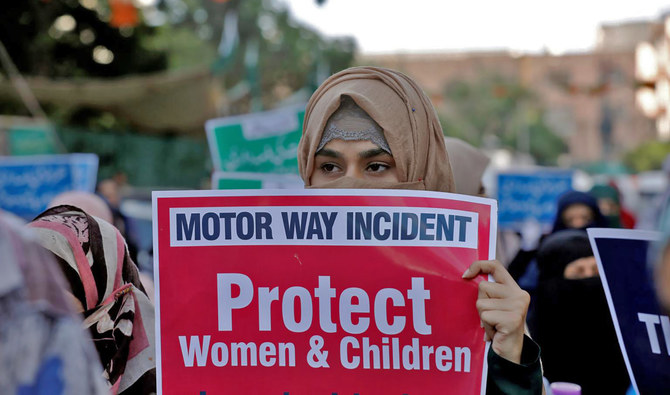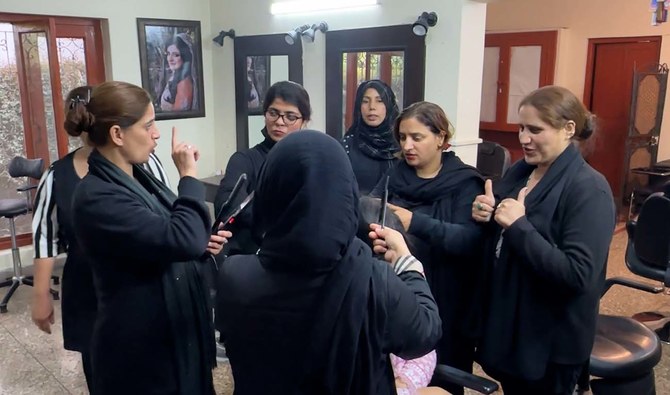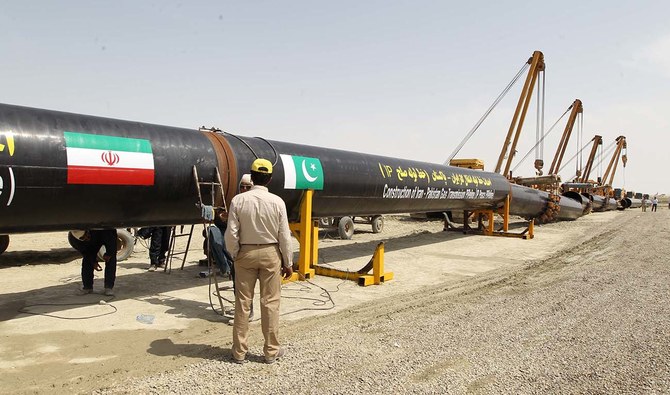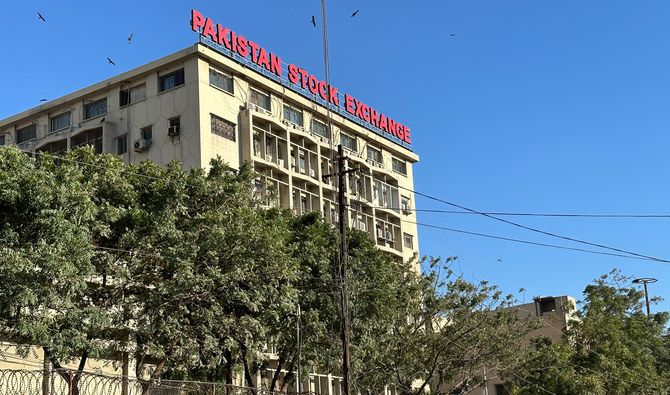ISLAMABAD: Pakistan’s National Assembly is all set to refer a bill on domestic violence for vetting to the Council of Islamic Ideology today (Thursday) since the government wants to make sure all its provisions are in line with Islamic injunctions.
The bill was passed by the lower house of parliament in April before being approved by the Senate after certain amendments in April. Some lawmakers, however, raised objections over its provisions, requesting the government to send it to the council for advice.
The council is a constitutional body that evaluates legal provisions within the framework on Islam when asked by the authorities and advises the legislature over religious issues, though its recommendations are not binding on parliament.
The government is expected to ask the National Assembly speaker today to refer the bill to the council for advice and see if its provisions are in line with the injections of Islam.
According to a senior official who works with the country’s human rights ministry, there is nothing wrong with the bill that could be fixed by the council.
“The government is now sending the draft legislation to the council, so let’s see how they respond to it,” Muhammad Hussain Mangi, the ministry's director general, told Arab News.
He added it was “an important piece of legislation” that should be implemented to establish an effective system of protection and rehabilitation of women against domestic violence.
The draft legislation defines domestic violence as “all acts of physical, emotional, psychological, sexual and economic abuse committed by a respondent against women, children, vulnerable persons, or any other person with whom the respondent is or has been in a domestic relationship that causes fear, physical or psychological harm to the aggrieved person.”
The crime is punishable by simple imprisonment from six months to three years and a fine from Rs.20,000 to Rs.100,000.
Rights activists have questioned the government’s decision to send the bill to the council for vetting, describing it as yet another “delaying tactic” to avoid the implementation of the law that is designed to protect women and other vulnerable members of the society.
Alia Amirali, a member of Women Democratic Forum, said the government should have first explained to the public why it thought that the articles of the law were against the teachings of Islam before sending it to council for advice.
“If women get justice in case of a domestic violence, is it against the injunctions of Islam,” she questioned, adding that religion was being used as a weapon against women and vulnerable members of the society to keep them compliant.
“The referral of the bill to the council for vetting signals to the public that the government was not serious in enacting and implementing such laws,” Amirali told Arab News.
Under the United Nations human rights conventions ratified by Pakistan, particularly the Convention on the Elimination of all forms of Discrimination Against Women (CEDAW), all states are obliged to take legislative measures for the protection of women in domestic life.
Maria Farooq, a high court advocate and women’s rights activist, said that recommendations of the Council of Islamic Ideology on the bill should be progressive and help report the underreported cases of domestic violence.
“The government may incorporate the council’s recommendations in the bill if they help strengthen the legislation in protecting the women’s rights,” she told Arab News. “If a law is passed without proper consultation and vetting, its scope remains limited and courts also interpret it in their own ways.”
Pakistan refers domestic violence bill to Council of Islamic Ideology for advice
https://arab.news/55642
Pakistan refers domestic violence bill to Council of Islamic Ideology for advice

- The draft legislation proposes three years imprisonment and fine for perpetrators of domestic abuse
- Rights activists question the referral of the bill to the council without specifying provisions that are thought to be in contravention to Islamic injunctions
Pakistan’s deaf-staffed beauty salon provides economic opportunity, empowers hearing impaired

- There are seven deaf beauticians out of a total of 12 employed at Options Salon in Abbottabad
- According to the World Health Organization, deaf population in Pakistan is around 10 million people
ABBOTTABAD: Eight years ago, while offering a training class at her Options beauty salon in the northwestern Pakistani city of Abbottabad, Nighat Aftab received an unlikely application: that from a deaf girl who wanted to attend the training and join her salon.
“I didn’t have much experience working with such women and at first, I hesitated a little that how could I hire such a person whose language I don’t understand?” Aftab told Arab News in an interview earlier this month. “But then I said, ‘Come, join me’.”
Today, there are seven deaf beauticians out of a total of 12 employed at Options, which has since become a sanctuary for women with hearing and speech impairments, providing them economic opportunity, a chance to be financially independent and earn for their families, and a place where they can be part of a supportive, inclusive community.
According to the World Health Organization, the deaf population in Pakistan is around 10 million people. Pakistan has one of the lowest percentages of female labor force participation in South Asia and women with disabilities face even more impediments to employment.
“Previously, I used to work at a parlor in Islamabad where my salary wasn’t great, and I used to miss home a lot,” beautician Saima Mir told Arab News in sign language as Aftab translated for her.
“Now I am very happy. I like working here. There are many here who cannot hear and speak, it makes me happy.”
Others also said they felt a “sense of belonging” at the Options Salon.
“I have my mother and father. They are old. I feel frustrated at home as there is nobody with whom I can talk and share,” Isma Mushtaq told Arab News. “I come here and I spend time here happily.”
While many of the salon’s loyal customers are now used to communicating with the deaf staff members, that was not always the case, Aftab recalled, saying she faced criticism in the beginning by clients struggling to communicate with her workers. To bridge the gap, deaf workers were teamed up with those from the hearing community.
“The difficulties we faced [with communication] in the beginning got resolved over time,” said Sobia Khan, a beautician from the hearing community.
And the troubles had been worth it, Aftab said.
“I might have closed down the salon by now because my daughters are now married and I want to enjoy my own life but I am committed because of these young women [deaf workers] and I am unable to quit because their employment is attached to me,” she said.
“And because of them, Allah has blessed me with health. I am able to come to work daily, even though I am not that healthy, but I am happy here.”
Iran, Pakistan seek ways to complete gas pipeline project

- Both countries signed agreement to construct the pipeline from Iran’s South Fars gas field to Pakistan’s Balochistan, Sindh
- Tehran says has invested $2 bln to construct pipeline, but work on Pakistan side has been held up due to fears of US sanctions
KARACHI: Iran and Pakistan are looking at ways to complete a long-delayed gas pipeline project between the two countries, Iran’s Consul General to Pakistan, Hassan Nourian, said on Monday.
“We see political determination from Pakistan to complete the project,” he told reporters in the southern city of Karachi.
The countries signed an agreement to construct the pipeline from Iran’s South Fars gas field to Pakistan’s Balochistan and Sindh provinces in 2010, but work on Pakistan’s portion has been held up due to fears of US sanctions.
The 1,900 kilometer (1,180 mile) pipeline was meant to supply 750 million to one billion cubic feet per day of natural gas for 25 years to meet Pakistan’s rising energy needs.
Tehran says it has invested $2 billion to construct the pipeline on its territory. Pakistan, however, did not begin construction, citing international sanctions on Iran as the reason.
In 2014, Islamabad asked for a 10-year extension to build the pipeline, which expires in September this year. Iran can take Pakistan to international court, industry watchers have said.
Faced with potential legal action, Pakistan’s caretaker administration this year gave the go ahead in principal to commence plans to build an 80km segment of the pipeline.
In March, Islamabad said it would seek a US sanctions waiver for the pipeline. The US, however, said it did not support the project and cautioned about the risk of sanctions in doing business with Tehran.
Nourian on Monday said the pipeline did not come under international restrictions, and that the two countries were discussing the issue.
He did not answer a question about the potential for Iran to take legal action against Pakistan if it did not complete its side of the pipeline this year.
Pakistan, whose domestic and industrial users rely on natural gas for heating and energy needs, is in dire need for cheap gas with its own reserves dwindling fast and LNG deals making supplies expensive amidst high inflation.
Iran has the world’s second-largest gas reserves after Russia, according to BP’s Statistical Review of World Energy, but sanctions by the West, political turmoil and construction delays have slowed its development as an exporter.
ICC shortlists Pakistan’s Shaheen Afridi, UAE’s Waseem for Player of the Month award

- Shaheen Shah Afridi took eight wickets in last month’s T20I home series against New Zealand
- UAE’s Mohammad Waseem smashed 56-ball century in last month’s ACC Premier Cup final
ISLAMABAD: Pakistan’s pace sensation Shaheen Shah Afridi and UAE batter Muhammad Waseem have been shortlisted for the ICC Player of the Month award for April 2024, the International Cricket Council (ICC) reported on Monday, after the left-arm bowler’s string of impressive performances against New Zealand last month.
Afridi led Pakistan’s pace attack against New Zealand in a home T20I series against the Black Caps in April. Pakistan failed to win the series against a second-string New Zealand squad but drew 2-2 against Michael Bracewell’s squad.
The left-arm pacer, however, played a key role in Pakistan’s victories in two of the five matches played between the teams.
The second T20I saw Afridi blitz through the Blackcaps batting lineup, taking three for 13 as Pakistan registered a dominant victory. Then, trailing in the series for the fifth and final contest, Afridi once again wreaked havoc, taking four for 30 to salvage the series draw. Eight wickets in the series at an average of 10.00 saw Afridi walk away with the Player of the Series prize.
“Shaheen picked up the only wicket in the rain-affected opening match of the series with the Kiwis and then followed that up with two eye-catching efforts in the second and fifth games of the series in Rawalpindi and Lahore,” the ICC said in a report.
“Eight wickets in the series at an average of 10.00 saw Afridi walk away with the Player of the Series prize.”
UAE’s pinch-hitter Waseem is also among the three nominees from the men’s category after scoring bulk runs at the ACC Premier Cup and helping himself to a third T20I century in April. Waseem started the month with a first-ball duck against Kuwait before the 30-year-old quickly found form at the top of the UAE batting order as he helped himself to innings of 65, 45 and 48 in three consecutive matches.
“But Waseem’s highlight of the month came in the final of the ACC Premier Cup as he smashed six fours and a whopping seven sixes in making his third T20I century from just 56 deliveries and helping UAE to an impressive 55-run triumph over Oman,” the ICC said.
Namibia’s Gerhard Erasmus is the third nominee shortlisted by the ICC for his impressive performances during the team’s tour of Oman in April.
Erasmus produced two Player of the Match performances over the course of the five-match T20I series, with his first one coming in a narrow six-run loss in the second game of the series when the versatile all-rounder hit 58 from 56 deliveries and backed that up with a spell that netted 3/7.
However, in the decisive fifth match, Erasmus smashed six sixes when scoring a quickfire 64 from 29 deliveries and then made a pair of crucial breakthroughs as Namibia clinched the series with an emphatic 62-run triumph.
Afridi, who has 81 wickets from 61 T20Is, will be Pakistan’s pace attack leader as the green shirts take on Ireland and England in two away series this month. Pakistan will then head to the US and West Indies where they are scheduled to compete in the ICC T20 World Cup 2024.
Pakistan top court suspends verdict denying reserved parliamentary seats to Khan-backed party

- Under election rules, parties are allotted reserved seats in proportion to number of parliamentary seats they win in polls
- Election Commission ruled in March Khan-backed SIC was not eligible for reserved seats, Peshawar High Court upheld ruling
ISLAMABAD: Pakistan’s top court on Monday suspended a verdict by the Peshawar High Court (PHC) that a party aligned with candidates backed by former premier Imran Khan was not eligible for reserved seats in the legislature, a blow for the country’s coalition government headed by Prime Minister Shehbaz Sharif.
Khan’s Pakistan Tehreek-e-Insaf (PTI) party couldn’t contest the Feb. 8 elections under its traditional electoral symbol, a cricket bat, which it was denied on technical grounds. The PTI subsequently struck an alliance with another party, the Sunni Ittehad Council (SIC), in a bid to secure reserved seats for women and minorities in parliament.
Under Pakistan’s election rules, political parties are allotted reserved seats in proportion to the number of parliamentary seats they win in the election. This completes the National Assembly’s total strength of 336 seats.
The Election Commission had ruled in March that the SIC was not eligible for reserved seats, a decision the alliance had appealed in the PHC, which also rejected it. The SIC then approached the Supreme Court to appeal the high court’s decision.
A three-member bench of the top court took up the SIC’s petition for hearing on Monday.
“The Supreme Court has suspended the Election Commission’s order and the Peshawar High Court’s order,” PTI Chairman Gohar Khan, who is also Khan’s lawyer, told reporters outside the top court after it rejected the PHC verdict. “This is a vindication of our stance.”
He said the Supreme Court had also barred members of other political parties elected on reserved seats that should have been allotted to the SIC from casting their votes for or against any legislation.
The PTI leader said the SIC had been deprived of 67 reserved seats for women and 11 parliamentary seats for minorities. After losing 78 reserved seats, PM Sharif’s coalition government had lost its two-thirds majority, he added.
Khan, who is in jail following a string of convictions, and his PTI say the party was stripped of its bat symbol as a ruse to undermine its popularity and keep it from winning a maximum number of seats in general elections.
In February, an agreement between Bhutto Zardari’s Pakistan Peoples Party (PPP) and the Pakistan Muslim League-Nawaz (PML-N) of three-time Premier Nawaz Sharif ended days of uncertainty and negotiations after the Feb. 8 elections produced a hung national assembly.
The PML-N’s 79 and the PPP’s 54 seats together made a simple majority in parliament to form a government and they also roped in smaller parties in the coalition.
Candidates backed by Khan won 93 seats but did not have the numbers to form a government. He and his party have rejected the results of the elections, alleging widespread rigging.
Pakistan’s benchmark share index rises as much as 1.5%

- Pakistan’s benchmark share index has surged 73.4% over the past year, up 12.9% year-to-date
- Market reacting to Saudi business delegation’s arrival, IMF statement on mission visit, says analyst
KARACHI: Pakistan’s benchmark share index rose 1.5% during intraday trade on Monday, to an intraday high of 72,986 points.
The index has surged 73.4% over the past year and is up 12.9% year-to-date.
A Saudi delegation arrived in Pakistan on Sunday for talks on trade and investment opportunities, particularly in the exploration and production sectors.
Adnan Sheikh, assistant vice president at Pak Kuwait Investment Company, said the market was up following news of the delegation’s arrival along with an IMF statement regarding a mission visit.
“The PSX is still very cheap with price to earnings ratio of under 5x compared to average of 8x,” Sheikh added.
Pakistan last month completed a short-term $3 billion program, which helped stave off sovereign default, but the government of Prime Minister Shehbaz Sharif has stressed the need for a new longer term program.
An International Monetary Fund mission is expected to visit Pakistan this month to discuss a program, the lender said on Sunday ahead of Islamabad beginning its annual budget-making process for the next financial year.
The IMF did not specify the dates of the visit, nor the size or duration of the program.
Earlier, in an interview with Reuters, Finance Minister Muhammad Aurangzeb said the country hoped to agree the outlines of a new IMF loan in May.
Pakistan is expected to seek at least $6 billion and request additional financing from the Fund under the Resilience and Sustainability Trust.










